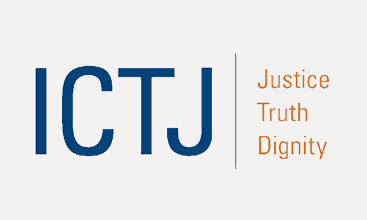Editor’s note: This is the first in a series of articles on Transitional Justice in Taiwan by our writer Yu Shen.
Transitional justice ,after three decades of democratization in Taiwan, was brought into the public sphere after the Democratic Progressive Party (DPP) won the presidential and parliamentary elections in 2016.
The public in Taiwan commemorates the victims of the infamous ‘228’ events annually on February 28th, while on the whole being far more indifferent to most of the political crimes and incidents that took place during the period now known as ‘White Terror’.
What is transitional justice?
The concept of transitional justice emerged on the global scene shortly after World War II, when the Nazi perpetrators of many crimes against humanity were tried and punished in the Nuremberg Trials for the crimes they had committed during the Holocaust and in the course of the war.
According to the International Center for Transitional Justice (ICTJ), transitional justice is a response to systematic or widespread violations of human rights, and a method by which to seek recognition for victims and the promotion of possibilities for peace, reconciliation and democracy.
Transitional justice is not a special form of justice, but is rather justice adapted to societies transforming themselves after a period of pervasive human rights abuses.
The United Nations also identifies four pillars of transitional justice: truth, justice, reparation, guarantees of non-recurrence.
Transitional justice addresses the underlying roots of the international or regional conflicts to prevent history from repeating itself.
Why is it important?
As the ICTJ explains, systematic human rights violations affect not just the individual involved, but the whole of society.
States have duties to ensure that violations will not recur, and therefore, a special duty to reform institutions that were either involved in, or incapable of, preventing the abuses.
Transitional justice can be regarded as a method to bring justice back to the victims and the families of human rights violations, while revealing the truth about what happened, which can ultimately lead to reconciliation that enables the restoration of social relations on the basis of fundamental values such as human dignity, respect, the right to life and the right to physical and psychological integrity.
To take a macroscopic view, nationally led transitional justice processes contribute to atonement for human rights violations and can facilitate state accountability.
These practices help to establish trust and set the conditions for a peaceful democratic governance, and at the same time prevent societies from relapsing into systematic discrimination or violence.

Transitional justice in Taiwan
President Tsai Ing-Wen included transitional justice issue in her platform during her campaign in 2016.
Under President Tsai’s leadership, two agency was established to tackle with transitional justice issue: (The) Ill-Gotten Party Assets Settlements Committee in 2016, and the Transitional Justice Commission in 2018.
The former deals with the assets obtained by the Kuomintang (KMT), the former authoritarian party that led Taiwan, from August 15th, 1945, to July 15th, 1987.
The latter, on the other hand, covers issues pertaining to archives, authoritarian symbols, and wrongful convictions during the period from August 15th, 1945, to November 6th, 1992.
In this next part in this series, I will look at the case of Chen Wen-chen, the family of Lin Yi-hsiung, and Formosa Magazine incident.
The reference for the series will primarily be the documentation and investigations released by the Transitional Justice Commission (https://www.tjc.gov.tw/statistics).











Comments are closed.